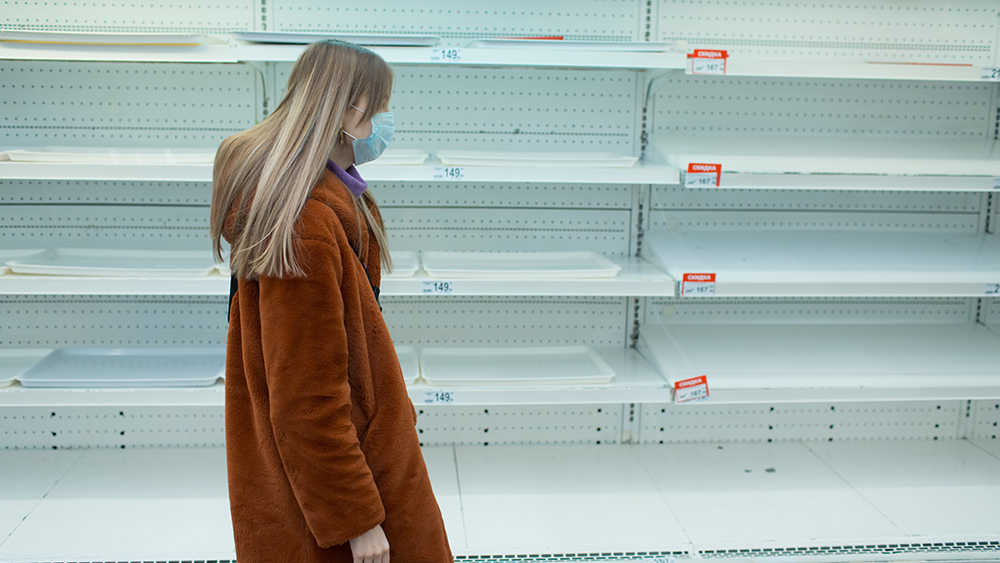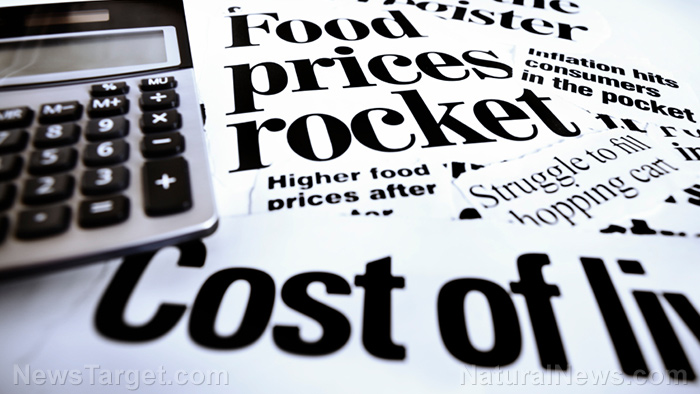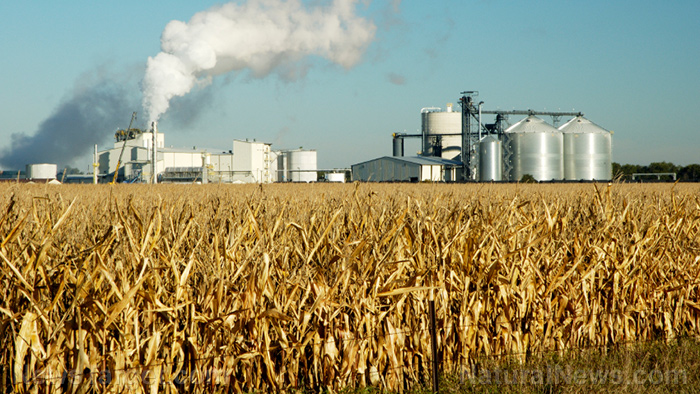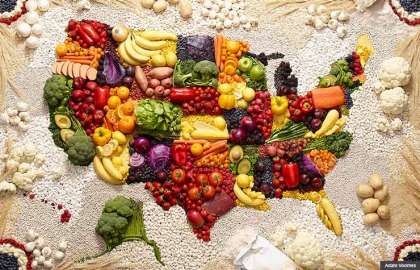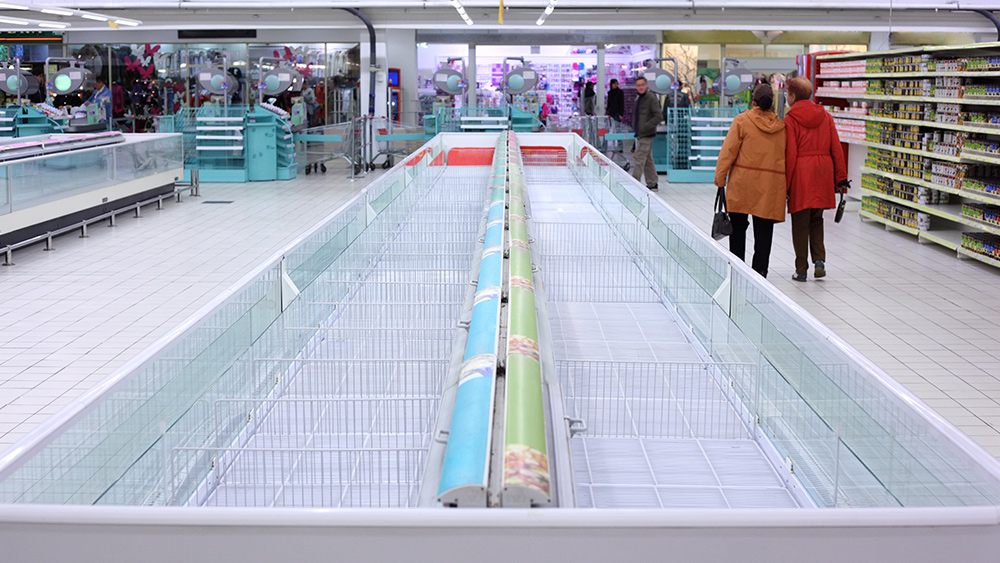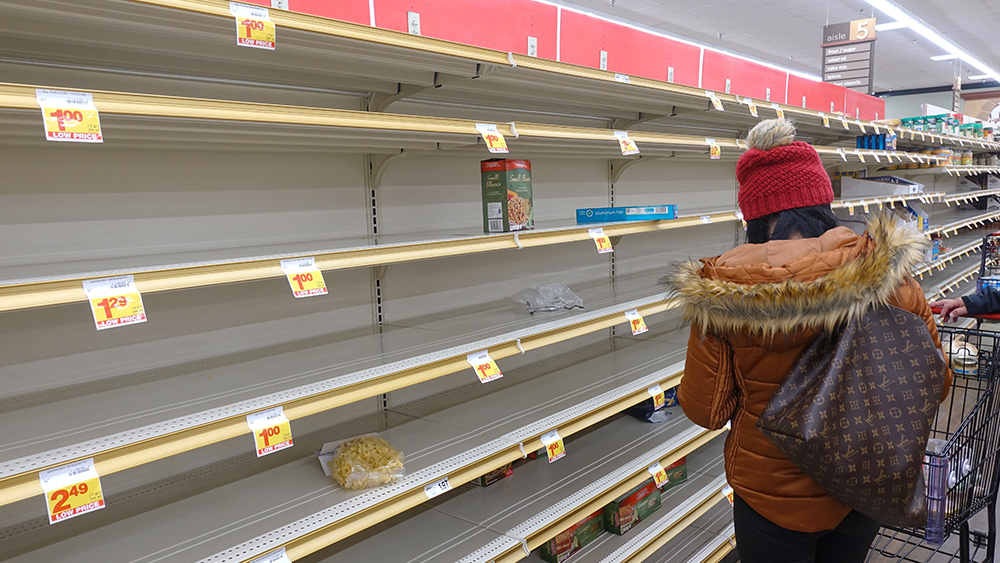Photos show alarming extent of food shortages in grocery stores across the nation
01/25/2022 / By Cassie B.
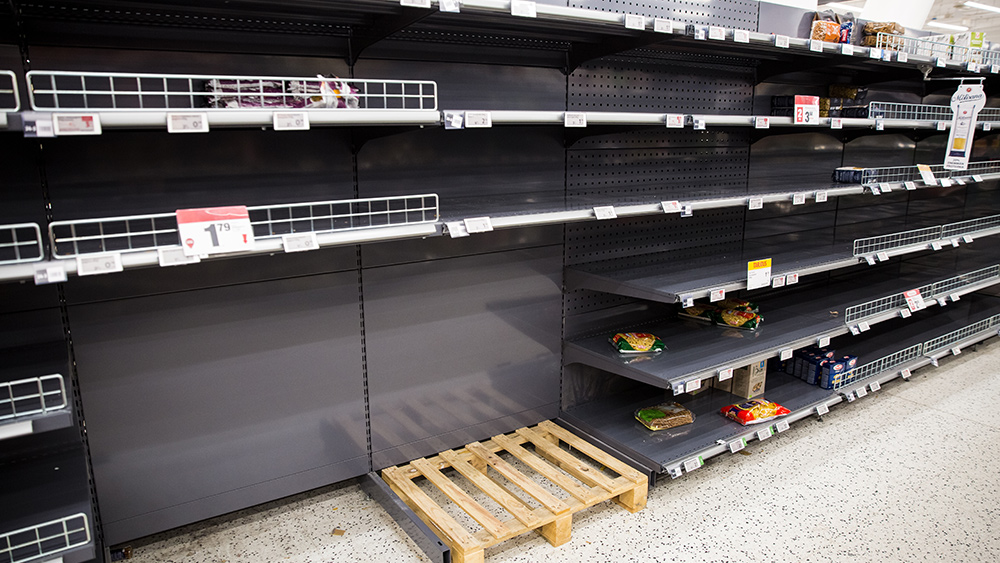
There have been lots of stories in the news lately about grocery shortages, but what does this mean for local shoppers? All News Pipeline recently asked readers to submit photos of empty store shelves, and the results demonstrate how widespread the problem is throughout the nation.
One of the categories topping the shortage lists is paper goods. This won’t be terribly surprising to anyone who remembers what happened with toilet paper when the pandemic first got underway, but these shortages are back with a vengeance, and paper towels and other paper goods are joining toilet paper this time around. Paper mills are struggling to keep up to current demand, and the ongoing supply chain issues are also taking their toll.
However, as ANP points out, this may be inconvenient for many but it’s nowhere near as dire as shortages of actual food and water that people need to survive. Some of the food and drink shortages being seen across the country right now involve canned goods, pasta, juice boxes, baby formula, eggs, meat, household cleaning items and pet food. Cream cheese has been particularly hard to come by in many areas, with some people reporting that their stores are otherwise well-stocked but missing this popular food.
A reader image from a Food Lion outlet in Maryland shows several empty freezer cases marked “Potatoes,” while another reader sent a picture of a largely empty produce section at a Safeway in Scottsdale, Arizona. Another reader submitted a photo of several empty food cases at a Jackson, Tennessee Walmart.
Some stores are getting creative about giving shoppers the illusion of being well-stocked. One photo from an unnamed store showed a produce section filled with what appear to be single heads of the same type of lettuce occupying six long shelves in a produce section, all bearing different price tags, under headings such as “bagged salads.”
ANP also shared a set of four photos from Twitter depicting empty shelves and produce areas at a normally well-stocked Wegmans with the caption “elections have consequences.”
Meanwhile, Florida CBS affiliate WKRG reports that stores in the Destin area are placing limits on the amount of paper products and cat food people can purchase. For example, one store is limiting shoppers to buying no more than two of each item in its bath tissue section, while cat food is limited to 10 cans or two variety packs per customer.
The supermarket chain Publix told the station in a statement: “The supermarket supply chain is under a lot of stress, impacted by product and labor shortages, demand, record exports, shipping constraints, and inflation. We continue to maintain constant communication with our suppliers; however, various product lines may be out of stock in assorted categories.”
What’s behind all these food shortages?
Part of the problem is employees at food producers like Conagra Brands and Campbell Soup calling in sick due to Covid. The grocery distributor SpartanNash, which operates 100-plus Midwestern stores and distributes to a further 2,000 stores, said it saw cases among staff triple recently.
Since the pandemic began, many food industry workers have been quitting their jobs after being subjected to poor working conditions, long hours and low pay.
National Growers Association President and CEO Greg Ferrara said in a House Agricultural Committee hearing: “The food industry continues to adapt to a shifting marketplace, but the bottom line is that we must have access to a stable workforce in order to adequately meet the demands of American consumers.”
However, there are lots of reasons for the shortages besides worker sicknesses, such as port backlogs and other supply chain issues against the backdrop of rising inflation under President Biden. Moreover, the spike in Covid cases due to Omicron has the effect of keeping supermarket and food industry workers at home while also raising demand for groceries among those who can’t leave the house, making the problem even worse.
Sources for this article include:
Submit a correction >>
Tagged Under:
chaos, collapse, coronavirus, crisis, food collapse, food industry, food scarcity, food supply, grocery, grocery shortages, infections, labor shortages, omicron, outbreak, pandemic, panic, products, supply chain
This article may contain statements that reflect the opinion of the author
RECENT NEWS & ARTICLES
FoodRiots.news is a fact-based public education website published by FoodRiots.news Features, LLC.
All content copyright © 2021 by FoodRiots.news Features, LLC.
Contact Us with Tips or Corrections
All trademarks, registered trademarks and servicemarks mentioned on this site are the property of their respective owners.




